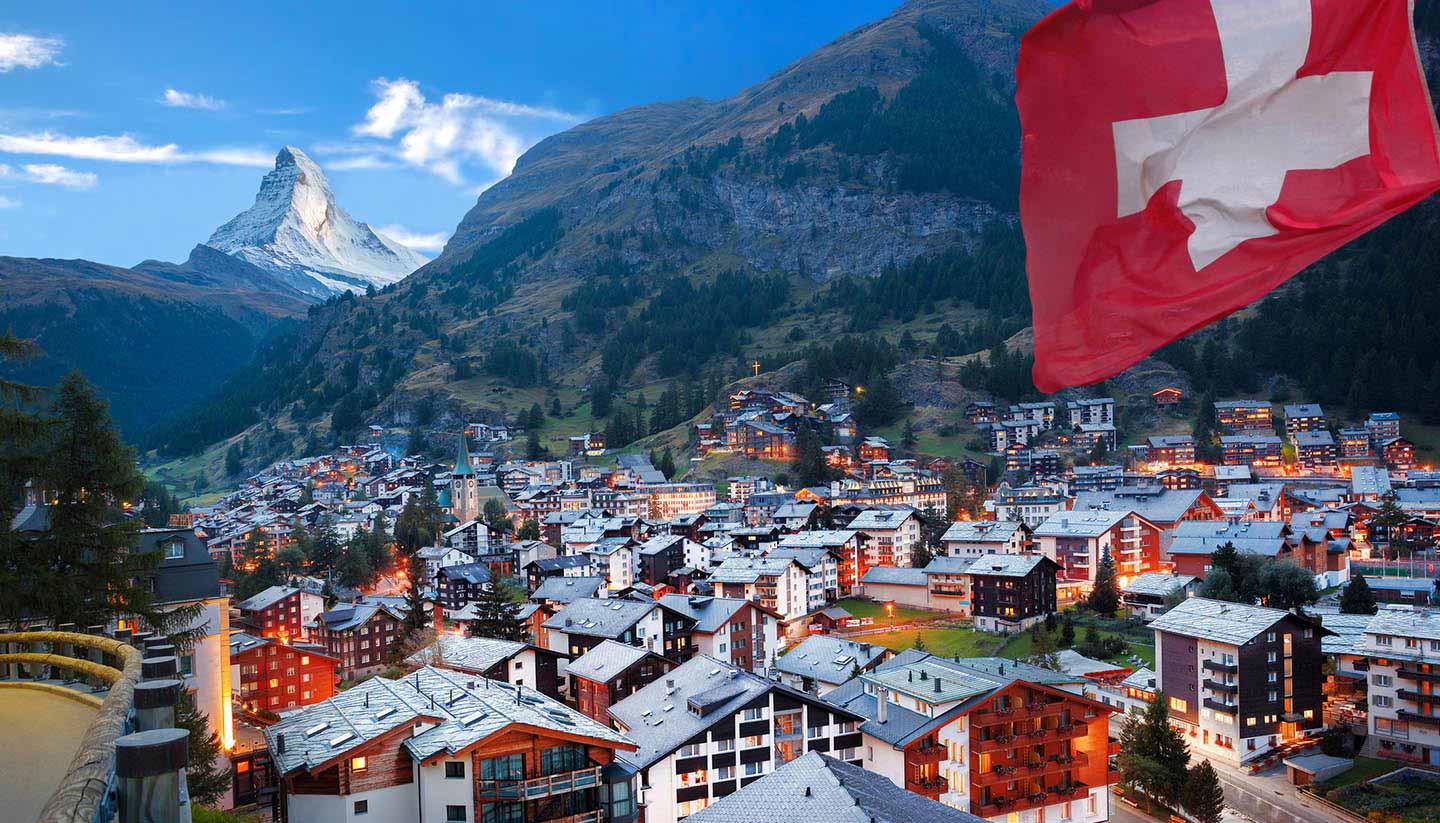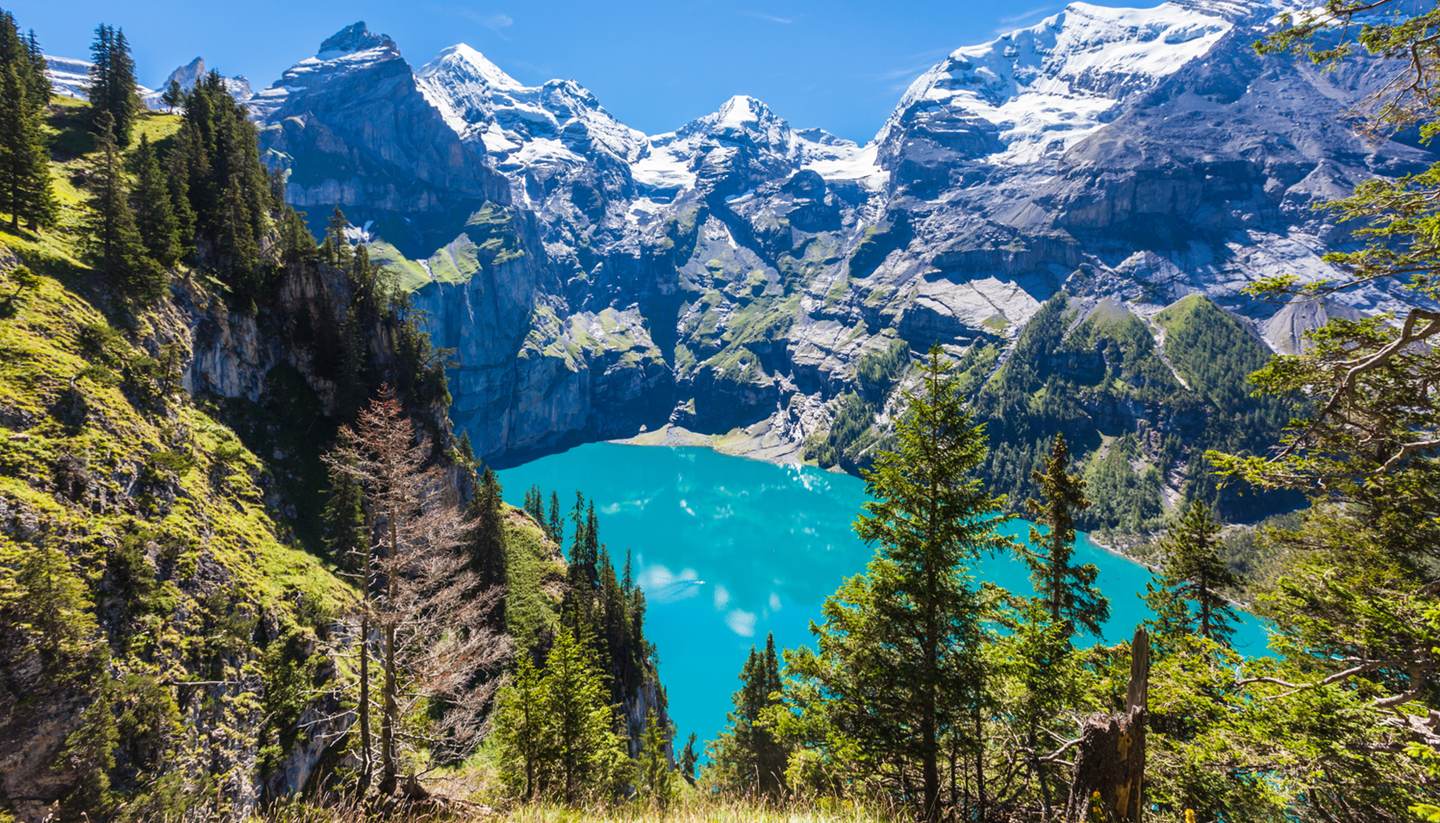Getting Around Switzerland
Air
Domestic air travel within Switzerland is limited due to the country's small size and excellent rail network, but key routes are available for those seeking speed and convenience. Popular domestic routes include flights between Zurich and Geneva, as well as Zurich and Lugano. These routes are primarily operated by SWISS and are often used by business travellers.
Road
While the Swiss train network is exceptional, driving allows visitors to venture off the beaten path and explore charming villages, hidden Alpine lakes, and breathtaking mountain passes at their own pace. The country's well-maintained roads and clear signage make navigation easy, and iconic routes like the Grand Tour of Switzerland (a 1,643km tourist circuit) provide a structured way to discover its diverse regions. Parking is generally available in cities and tourist areas, but be mindful of restrictions and fees.
Side of the road
RightRoad Quality
The road quality in Switzerland is exceptional, with smooth, well-maintained surfaces, clear signage, and excellent infrastructure.
Car Hire
Major international car rental companies such as Avis, Europcar and Hertz operate in all major airports and cities, along with local providers. A valid driving licence is required, and most rental agencies accept licences from non-EU countries, including the UK and USA. Be aware that a vignette (toll sticker) is mandatory for motorway and expressway use.
Taxi
Taxis in Switzerland are readily available in major cities, towns, and at airports. They run on a metered system, with fares varying by region and often including a base fare and per-kilometre charge. Taxi fares usually include service charges, but rounding up the fare is customary. It's worth noting that taxis in Switzerland can be expensive compared to other forms of transport.
Ride-hailing services like Uber are available in larger cities such as Zurich, Geneva, and Basel, offering a more convenient and often cheaper alternative.
Bike
Visitors can rent bikes or e-bikes in most cities and towns, making it easy to explore urban areas or venture into the countryside. Drivers are generally respectful of cyclists, and dedicated bike lanes are common. However, cyclists should be prepared for hilly terrain and changing weather conditions, especially in mountainous areas.
We recommend keen cyclists check out SwitzerlandMobility, the national network for non-motorised traffic, which offers a range of routes at national, regional, and local levels.
Coach
Long-distance bus services are operated by companies like FlixBus and PostBus, offering comfortable and reliable travel across the country. While coach travel is not as popular as trains due to the efficiency and coverage of the Swiss rail network, it is an excellent choice for budget-conscious travellers or those looking to reach smaller towns. Boarding a long-distance bus is easy, with tickets available online or at stations, and buses are generally punctual and well-equipped.
Regulations
Driving regulations in Switzerland are strictly enforced to ensure road safety. Seat belts are mandatory for all passengers, and headlights must be used during the day. The use of mobile phones while driving is prohibited unless hands-free equipment is used. Speed limits vary by location – usually 120 km/h on motorways, 80 km/h on rural roads, and 50 km/h in urban areas unless otherwise indicated. Vehicles must carry mandatory items, including a warning triangle, reflective jacket, and first aid kit.
On minor roads, traffic going uphill has the right of way, ensuring smoother navigation on steep inclines.
Road numbers on green signs indicate toll expressways, where a toll vignette (Autobahn-Vignette) must be displayed.
Documentation
Foreign drivers must always carry a valid driving licence, proof of vehicle insurance, and their passport. Green Card insurance is not mandatory for EU and EFTA nationals, as their domestic insurance is typically valid in Switzerland. However, travellers from non-EU countries should check with their insurance provider to confirm coverage or obtain a Green Card for added assurance.
An International Driving Permit (IDP) is not required for most nationalities, but it serves as a translation of the original licence and is highly recommended for non-EU travellers, particularly if their licence is not in English, French, German, or Italian. For licences in non-Roman scripts, an IDP is especially useful to avoid potential misunderstandings. Be prepared to show your vehicle registration documents if requested.
Urban travel
Geneva's tram and bus networks cover the city and its surrounding areas, making it convenient for visitors to explore the main attractions. Geneva is also pedestrian-friendly.
Zurich's public transport includes trams, buses, and a reliable S-Bahn (suburban train) system, all of which are integrated into the same ticketing system. Tickets can be purchased at vending machines or via mobile apps.
Visitors should note that public transport in Switzerland operates on a trust-based system, meaning there are no turnstiles, but fines for travelling without a valid ticket are steep.
Taxis are available but costly, and service charges are often included in the fare. Ride-hailing services like Uber are available in larger cities such as Zurich, Geneva, and Basel. Service charges are usually included in taxi fares, but rounding up the fare is customary.
Visitors staying in registered accommodations in Basel-Stadt typically receive a mobility ticket for free public transport in the city and surrounding areas.
Rail
Rail transport is particularly well developed in Switzerland, with excellent services provided by Schweizerische Bundesbahnen (SBB, Swiss Federal Railways) and many other operators. Mainline services are punctual and geared to both tourists and business travellers. Trains run at least hourly from the major centres, and there is a countrywide timetable of regular services. Many trains offer dining cars and refreshments, while regional services include low-floor coaches for travellers using wheelchairs.
Independent railways provide scenic routes in certain regions, such as the Rhätische Bahn in the Grisons and the Berner-Oberland-Bahn. There are also numerous mountain railways, often the only means of access to winter resorts. Some of these are attractions in their own right, like the Gornergrat-Bahn in Zermatt, which climbs over 3,000m (9,800ft) above sea level, offering spectacular views of the Matterhorn. The Gotthard Panorama Express combines a boat journey on Lake Lucerne with a scenic train ride from Flüelen to Lugano, making it a highlight for visitors.
Rail Passes
A Swiss Travel Pass offers unlimited travel across trains, buses, and boats.



